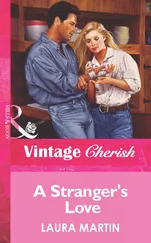Douglas Hofstadter - I Am a Strange Loop
Здесь есть возможность читать онлайн «Douglas Hofstadter - I Am a Strange Loop» весь текст электронной книги совершенно бесплатно (целиком полную версию без сокращений). В некоторых случаях можно слушать аудио, скачать через торрент в формате fb2 и присутствует краткое содержание. Жанр: Прочая документальная литература, на английском языке. Описание произведения, (предисловие) а так же отзывы посетителей доступны на портале библиотеки ЛибКат.
- Название:I Am a Strange Loop
- Автор:
- Жанр:
- Год:неизвестен
- ISBN:нет данных
- Рейтинг книги:4 / 5. Голосов: 1
-
Избранное:Добавить в избранное
- Отзывы:
-
Ваша оценка:
- 80
- 1
- 2
- 3
- 4
- 5
I Am a Strange Loop: краткое содержание, описание и аннотация
Предлагаем к чтению аннотацию, описание, краткое содержание или предисловие (зависит от того, что написал сам автор книги «I Am a Strange Loop»). Если вы не нашли необходимую информацию о книге — напишите в комментариях, мы постараемся отыскать её.
I Am a Strange Loop — читать онлайн бесплатно полную книгу (весь текст) целиком
Ниже представлен текст книги, разбитый по страницам. Система сохранения места последней прочитанной страницы, позволяет с удобством читать онлайн бесплатно книгу «I Am a Strange Loop», без необходимости каждый раз заново искать на чём Вы остановились. Поставьте закладку, и сможете в любой момент перейти на страницу, на которой закончили чтение.
Интервал:
Закладка:
There is, of course, a “principal domicile” or “main brain” for each particular “I”, which means that there remains a good deal of truth to simple, commonsensical statements like “My soul is housed in my brain”, and yet, close to true though it is, that statement misses something crucial, which is the idea, perhaps strange-sounding at first, that “My soul lives to lesser extents in brains that are not mine.”
At this point, we should think at least briefly about the meaning of innocent-sounding phrases like “my brain” and “brains that are not mine”. If I have five sisters, then saying “my sister” is, if not meaningless, then at least highly ambiguous. Likewise, if I have three nationalities, then saying “my nationality” is ambiguous. And analogously, if my self-symbol exists in, say, fifteen different brains (at fifteen different degrees of fidelity, to be sure), then not only is the phrase “my brain” ambiguous, but so is the word “my”! Who is the talker? I am reminded of a now-defunct bar in the Bay Area whose sign amused me no end every time I drove by it: “My Brother’s Place”. Yes, but whose brother’s place? Just who was doing the talking here? I never could figure this out (nor, I guess, could anyone else), and I relished the sign’s intentional silliness.
Fortunately, the existence of a “main brain” means that “my brain” has an unambiguous primary meaning, even if the soul uttering the phrase lives, to smaller extents, in fourteen other brains at the same time. And usually the soul uttering the phrase will be using its main brain (and thus its main body and main mouth), and so most listeners (including the speaker) will effortlessly understand what is meant.
It is not easy to find a strong, vivid metaphor to put up against the caged-bird metaphor. I have entertained quite a few possibilities, involving such diverse entities as bees, tornados, flowers, stars, and embassies. The image of a swarm of bees or of a nebula clearly conveys the idea of diffuseness, but there is no clear counterpart to the cage (or rather, to the head or brain or cranium). (A hive is not what I mean, because a flying swarm is not at all inside its hive.) The image of a tornado cell is appealing because it involves swirling entities reminiscent of the video feedback loops we’ve so often talked about, and because it involves a number of such swirls spread out in space, but once again there is no counterpart to the “home location”, nor is it clear that there is one primary tornado in a cell. Then there is the image of a plant sending out underground shoots and popping up in several places at once, where there is a primary branch and secondary offshoots, which is an important component of the idea, and similarly, the image of a country with embassies in many other countries captures an important aspect of what I seek. But I am not fully satisfied with any of these metaphors, and so, rather than settling on a single one, I’ll simply throw them all out at once, hoping that they stir up some appropriate imagery in your mind.
Feeling that One is Elsewhere
All this talk of one person inhabiting several bodies at the same time may seem wildly at odds with “common sense”, which unambiguously tells us that we are always in just one place, not two or more. But let’s examine this commonsense axiom a bit.
If you go to an I-Max movie theater and are riding a wild roller-coaster, where are you? The temptation is to say, “I’m sitting in a movie theater”, but if that’s the case, then why are you so scared? What’s to scare you about a couple of dozen rows of stationary seats, the odor of popcorn, and a thin screen hanging forty or fifty feet away? The answer is obvious: when you watch the movie, the audiovisual input to your brain seems to be coming not from inside the theater but from somewhere else, a place that is far away from the theater and that has nothing to do with it. And it is that input that you can’t help interpreting as telling you where you are. You feel you have been transported to a place where your body is actually not located, and where your brain is not located either, for that matter.
Of course since watching a movie is a very familiar activity, we are not confused by this phenomenon of virtual displacement, and we accept the idea that there is simply a temporary suspension of disbelief, so that we can enter into another world virtually, vicariously, and volatilely. No serious philosophical conundrums seem to be raised by such an experience, and yet to me, this first little crack allows the door of multiple simultaneous locations of the self to open up much more widely.
Now let’s recall the experience of being transported from the ski resort in California’s Sierra Nevada range to the Bloomington kennel via the “doggie cam” and the World Wide Web. Watching the dogs play in their little area, my children and I didn’t in the least feel that we were “in Ollie’s skin”, but let’s tweak the parameters of the situation a little bit. Suppose, for example, that the bandwidth of the visual image were greatly increased. Suppose moreover that the webcam was mounted not in a fixed spot above the fenced-in play area but on Ollie’s head, and that it included a microphone. And lastly, suppose that you had a pair of dedicated goggles (spectacles with earphones) that, whenever you put them on, transmitted this scene to you in very high audiovisual fidelity. As long as you can put them on and then take them off, these teleportation goggles would seem like just a game, but what if they were affixed for several hours to your head and served as your only way of peering out at the world? Don’t you think you would start to feel a little bit as if you were Ollie? What would it matter to you that you were in a faraway California ski resort, if your own eyes and ears were unable to give you any Californian input?
You might object that it’s impossible to feel that you are Ollie if his movements are out of your control. In that case, we can add a joystick that will tend to make Ollie turn left or right, at your discretion (how it does so is not germane here). So now your hand controls Ollie’s movements and you receive audiovisual input solely from the camera attached to Ollie’s head, for several hours nonstop. This scenario is rather bizarre, but I think you can easily see that you will soon start to feel as if you are more in the Indiana kennel, where you are free to move about, than in some Californian ski resort, where you are basically stuck to your seat (because you have your goggles on, hence you can’t see where you’re going, hence you don’t dare venture anywhere). We’ll refer to this sensation of feeling that you are somewhere far from both your body and your brain, thanks to the ultrarapid transmission of data, as “telepresence” (a term invented by Pat Gunkel and popularized by Marvin Minsky around 1980).
Telepresence versus “Real” Presence
Perhaps my most vivid experience of telepresence occurred when I was typesetting my book Gödel, Escher, Bach. This was back in the late 1970’s, when for an author to do any such thing was unheard of, but I had the good fortune of having access to one of the only two computer typesetting systems in the world at that time, both of which, by coincidence, were located at Stanford. The catch was that I was an assistant professor at Indiana University in far-off Bloomington, and I had courses to teach on Tuesdays and Thursdays. To make things doubly hard, there was no Internet, so I couldn’t possibly do the typesetting work from Indiana. To typeset my book, I had to be on site at Stanford, but my teaching schedule allowed me to get there only on weekends, and not on all weekends at that. And so each time I flew out to Stanford for a weekend, I would instantly zoom to Ventura Hall, plunk myself down at a terminal in the so-called “Imlac room”, and plunge furiously into the work, which was extremely intense. I once worked forty hours straight before collapsing.
Читать дальшеИнтервал:
Закладка:
Похожие книги на «I Am a Strange Loop»
Представляем Вашему вниманию похожие книги на «I Am a Strange Loop» списком для выбора. Мы отобрали схожую по названию и смыслу литературу в надежде предоставить читателям больше вариантов отыскать новые, интересные, ещё непрочитанные произведения.
Обсуждение, отзывы о книге «I Am a Strange Loop» и просто собственные мнения читателей. Оставьте ваши комментарии, напишите, что Вы думаете о произведении, его смысле или главных героях. Укажите что конкретно понравилось, а что нет, и почему Вы так считаете.












